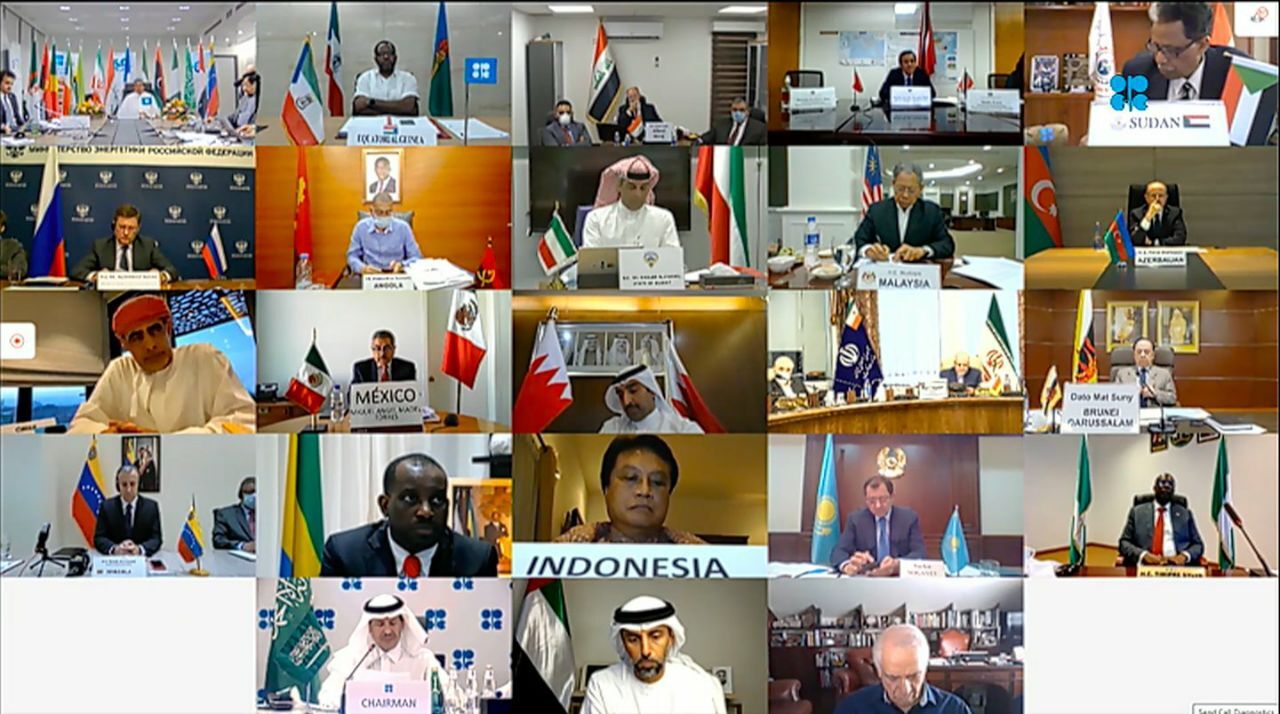OPEC Plus members recently agreed to cut oil production by 23 percent in July. Although some countries did not fulfill their previous commitment for June, the news of the agreement caused the price of oil to rise by more than 5 percent in July, reaching more than $ 42 per barrel; But given the five-month slump over non-compliance and then the agreement and the effects of the corona pandemic on global oil demand, it remains to be seen how stable these conditions will be and where the oil market will go.
The sustainability of these price conditions depends on two components, namely the commitment of OPEC members to reduce production on the one hand, and the appropriate perspective on global oil demand in the summer of 2020 on the other. In the previous round of OPEC Plus talks, which failed to reach an agreement to cut output by 10 million barrels, analysts believed that Russia intended to avenge the sanctions on Rosneft, but Trump’s pressure on Saudi Arabia and the threat of tariffs on oil imports from that country was effective, forcing Saudi Arabia to work with Russia to reduce production. However, the impact of these pressures was more effective than the effort to create tension in the Persian Gulf, and even minor signals of tension in the Persian Gulf region did not lead to a boom in the oil market.
But in the current situation, Russia has faced the opposition of G7 member states to return to the group, and the high price of oil that resulted from the stability of the new agreement could be seen as Russia’s retaliation against European countries. Under these circumstances, it is possible that some members, as in previous periods and, of course, due to the economic crisis caused by the corona epidemic and the negative economic consequences, will move towards the clandestine defeat of the recent agreement. Nonetheless, the July oil prices have been acceptable to the member states. However, there is still motive for violating the agreement.
If the agreement remains stable and is not broken by OPEC Plus members, then oil prices could be expected to rise in the summer of 2020, albeit at a slow pace, as a gradual return to normal operations in some European countries and the reopening of tourist centers will change the outlook of demand to gradual increase. Of course, this reopening does not mean the end of the corona crisis. and the continuation of the process of returning to normal activities depends on the return of the second corona wave.
In addition, the return of production and service activities to the normal level of the pre-corona period could be another factor in increasing global demand for crude oil; But the timing of the discovery of the corona vaccine and how different countries have access to the vaccine is an important factor in continuing the process of returning to normal pre-coronavirus activity. The crisis of renewed outbreak of corona virus is expected to culminate in the re-emergence of the virus in the fall of 2020; However, the possibility of escalation of corona in the summer is not weak.
The new OPEC Plus agreement was reached at a time that even zero oil prices was experienced in the market. From this perspective OPEC Plus countries have agreed to prevent a recurrence of such a situation, but as soon as they feel the conditions in the global oil market are back to normal, they may be tempted to violate the agreement. At the same time, the conditions for increasing demand do not seem to be stable and continuous, and it is possible that corona pandemic leave its impacts on the oil market again out of the need to impose quarantine and close part of its production and service activities.










0 Comments